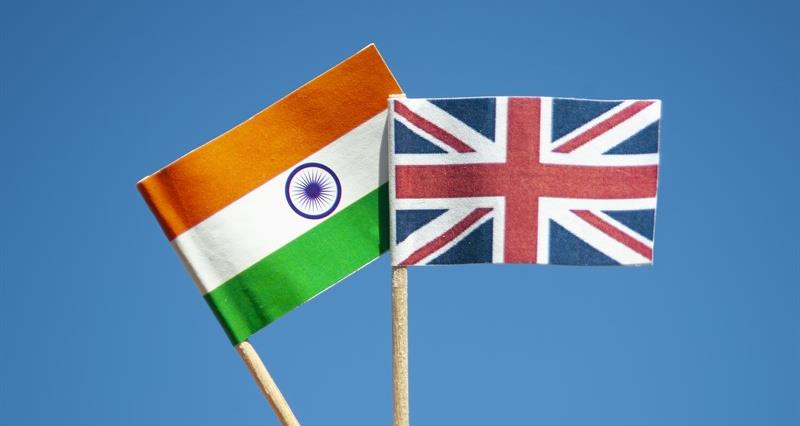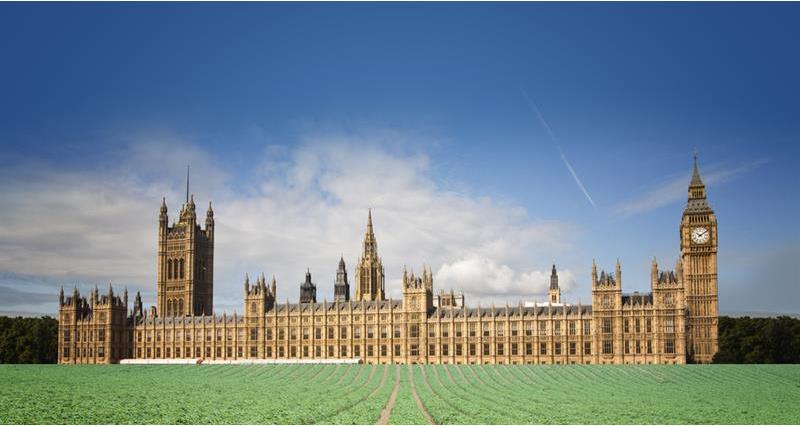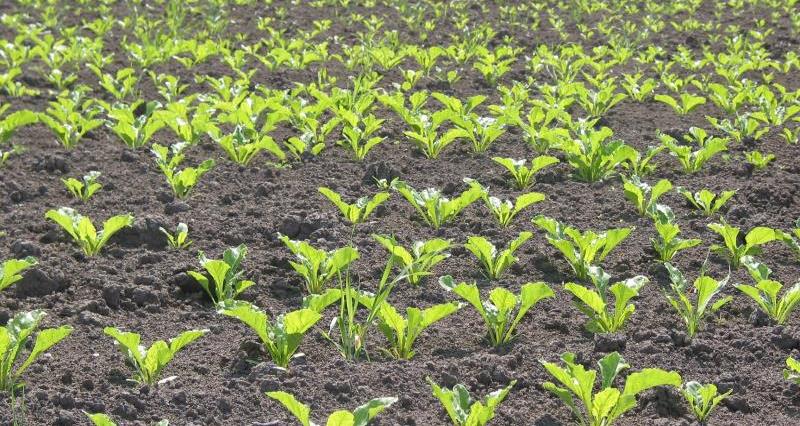This is the first FTA (free trade agreement) reached under the Labour government and will see reductions on 90% of tariff lines for UK exports to India. Within agri-food, the government has secured tariff reductions for whisky and gin, salmon, chocolate, biscuits and lamb – with the latter of these a key ask of the NFU.
Responding to the announcement of the deal, NFU President Tom Bradshaw said: “We’re pleased to see a balanced and considered outcome of the trade negotiations with India. Throughout these negotiations we have urged the government to stand its ground and to honour its commitments to British farmers when striking free trade deals.
“Overall, this deal will be reassuring for many farm businesses and we urge the government to maintain this balanced approach in all future trade negotiations.”
NFU President Tom Bradshaw
“Ministers have clearly listened to our concerns around upholding the UK’s production standards and the importance of safeguarding our most sensitive farming sectors by maintaining the current level of tariffs for imports of sugar, chicken, eggs and pork.”
This was a key ask of the NFU, and we lobbied hard to ensure these sectors were not exposed to unfair competition within this FTA.
Read: NFU Sugar welcomes exclusion of concessions on sugar in UK-India trade deal.
Tom said it was also great to see that the government has managed to secure full access to the Indian market for high quality British lamb, which will be well received by livestock farmers across the country.
“Overall, this deal will be reassuring for many farm businesses and we urge the government to maintain this balanced approach in all future trade negotiations,” he added.
What else has been agreed?
Under the agreement, the UK will have the ability to apply for India’s highest standard of protection for all UK GIs (Geographical Indications) listed for protection in the FTA, extending this beyond wines and spirits, which are the only products that currently benefit from the higher standard.
Whisky and gin tariffs will be halved from 150% to 75% before reducing to 40% by year ten of the deal, while automotive tariffs will go from over 100% to 10% under a quota.
The government has stated that there is nothing in this agreement that will compromise the UK’s high food standards and imports will still have to meet the same UK food safety and biosecurity standards.
Additionally, the UK will retain its regulatory autonomy to set its own, independent standards, ensuring it can continue to uphold high levels of protection for human, animal and plant health. ª º“ª™»Àbroadly welcomes these outcomes and will provide further scrutiny of the agreement once the relevant treaty text is published.
NFU work
- In August 2021, the NFU submitted a response to the government’s consultation on a future UK-India FTA. Our response outlined the opportunities for, as well as the potential threats to, the UK agricultural sector within a UK-India FTA.
- Negotiations were then formally launched in January 2022. Throughout the three-and-half-year negotiation process that followed, the NFU’s international trade team engaged closely with UK negotiators within both the Department for Business and Trade and Defra, advocating for the interests of farmer and grower members.
- In June 2023, former NFU Sugar Board chair Michael Sly and NFU Sugar commercial and market insights manager Arthur Marshall met with officials in Downing Street, where they presented NFU Sugar’s concerns about Indian sugar directly to government.
Explore a timeline of our work.
Next steps
Now that negotiations have concluded, the UK and India will finalise the legal text of the Free Trade Agreement and produce a legally binding treaty. This process will be finalised by signing the completed treaty text.
Following this, the UK’s independent TAC (Trade and Agriculture Commission) will be commissioned to scrutinise the Free Trade Agreement and produce a report on whether the measures within the FTA are consistent with the maintenance of UK statutory protections in relation to animal and plant health and life, animal welfare, and the environment.
Any legislative changes required to give effect to the FTA will then need to be scrutinised and passed by Parliament before ratification of the agreement can take place. Entry into force will take place once both the UK and India have completed their ratification processes.



